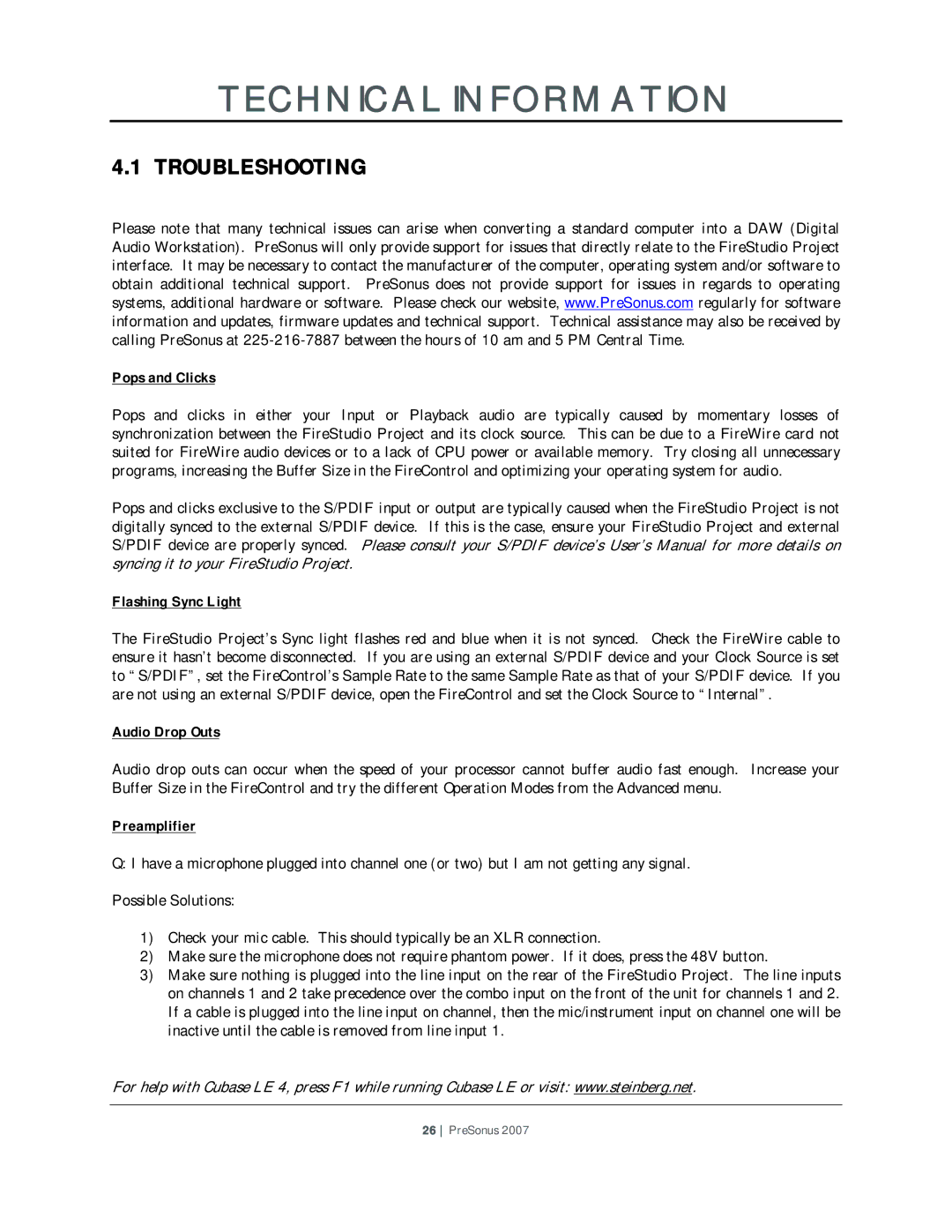
TECHNICAL INFORMATION
4.1 TROUBLESHOOTING
Please note that many technical issues can arise when converting a standard computer into a DAW (Digital Audio Workstation). PreSonus will only provide support for issues that directly relate to the FireStudio Project interface. It may be necessary to contact the manufacturer of the computer, operating system and/or software to obtain additional technical support. PreSonus does not provide support for issues in regards to operating systems, additional hardware or software. Please check our website, www.PreSonus.com regularly for software information and updates, firmware updates and technical support. Technical assistance may also be received by calling PreSonus at
Pops and Clicks
Pops and clicks in either your Input or Playback audio are typically caused by momentary losses of synchronization between the FireStudio Project and its clock source. This can be due to a FireWire card not suited for FireWire audio devices or to a lack of CPU power or available memory. Try closing all unnecessary programs, increasing the Buffer Size in the FireControl and optimizing your operating system for audio.
Pops and clicks exclusive to the S/PDIF input or output are typically caused when the FireStudio Project is not digitally synced to the external S/PDIF device. If this is the case, ensure your FireStudio Project and external S/PDIF device are properly synced. Please consult your S/PDIF device’s User’s Manual for more details on syncing it to your FireStudio Project.
Flashing Sync Light
The FireStudio Project’s Sync light flashes red and blue when it is not synced. Check the FireWire cable to ensure it hasn’t become disconnected. If you are using an external S/PDIF device and your Clock Source is set to “S/PDIF”, set the FireControl’s Sample Rate to the same Sample Rate as that of your S/PDIF device. If you are not using an external S/PDIF device, open the FireControl and set the Clock Source to “Internal”.
Audio Drop Outs
Audio drop outs can occur when the speed of your processor cannot buffer audio fast enough. Increase your Buffer Size in the FireControl and try the different Operation Modes from the Advanced menu.
Preamplifier
Q:I have a microphone plugged into channel one (or two) but I am not getting any signal. Possible Solutions:
1)Check your mic cable. This should typically be an XLR connection.
2)Make sure the microphone does not require phantom power. If it does, press the 48V button.
3)Make sure nothing is plugged into the line input on the rear of the FireStudio Project. The line inputs on channels 1 and 2 take precedence over the combo input on the front of the unit for channels 1 and 2. If a cable is plugged into the line input on channel, then the mic/instrument input on channel one will be inactive until the cable is removed from line input 1.
For help with Cubase LE 4, press F1 while running Cubase LE or visit: www.steinberg.net.
26 PreSonus 2007
